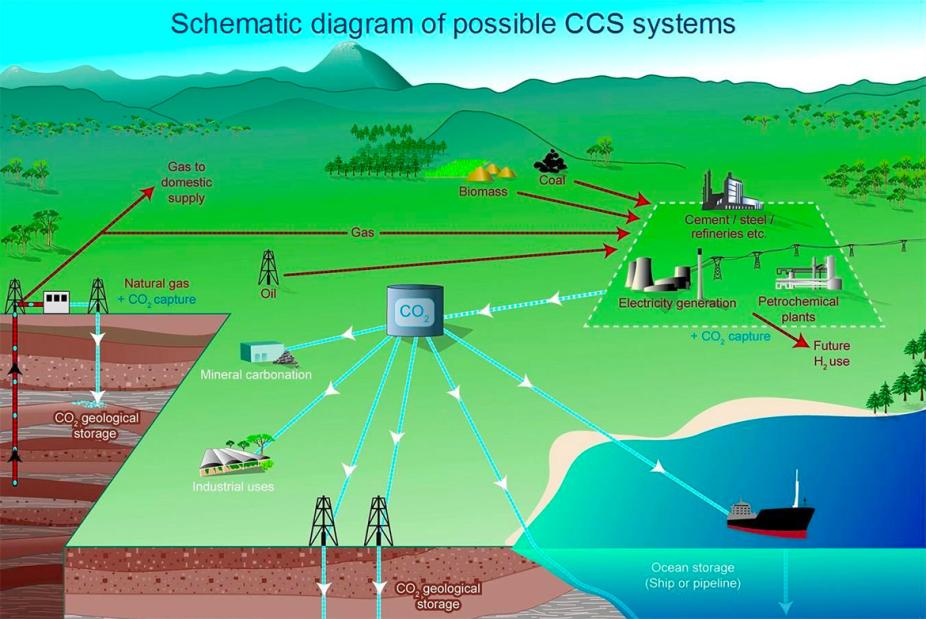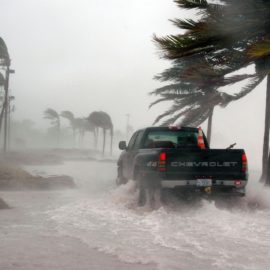
LSU has a program on it, the Governor likes it but it still is not the answer we need.
Two new trends gathering momentum pose serious threats to Louisiana’s hopes of preventing the Gulf of Mexico from drowning its bottom third. And, no, they have nothing to do with critical race theory or gender identity. One comes from local industries that have helped put us in this life-or-death struggle. The other is 7,000 miles away. But they have a symbiotic relationship that spells disaster for our future here. The local trend is the rising chorus from political and business leaders supporting the petrochemical industry’s drive to make our coastal zone a hub for carbon emissions capture and sequestration, or CCS. They say using carbon capture technology in their refineries will reduce local emissions, helping the state reach its goal of zero emissions.
nola.com
It is a tool but not the be all that we need.
Yes, climate scientists consider CCS a tool for reducing the greenhouse gas emissions causing climate change. And, yes, the science shows we must reduce emissions by 50% from 2010 levels in the next seven years or the impacts we are already suffering will increase in frequency and severity. Those include larger hurricanes, surging sea levels, unaffordable issuance rates, drought, forest fires and flooding rains, to name a few. But those same scientists caution that CCS offers only minor help; the only realistic chance we have of reaching critical emissions goals is to radically reduce the use of the products coming from those refineries and plants, such as gasoline in cars and trucks. That’s where the greatest emissions are produced. This is classic greenwashing. The industry claims it is turning green, but the real goal is to extend the life of the petrochemical industries that helped create the crisis. It doesn’t matter where the emissions occur, they all contribute to global warming. Denying your gasoline refinery is warming the planet because it uses CCS is like a bullet maker claiming it doesn’t cause human suffering because someone else fires the gun. Any company whose products lead to emissions is giving a helping hand to the rapid acceleration of sea level that Louisiana scientists say will drown much of our existing coast in the decades ahead.
The next worrying trend is the Antarctic. How are they related?
Which brings us to Antarctica, site of the second worrying trend. That continent has long been recognized as the key for global coastal survival because the ice resting atop its land is several miles thick and covers an area the size of the U.S. and Mexico combined. As those fields and glaciers melt, they add water to the oceans. There has been a steady but slow melting for years, but researchers recently made two scary discoveries. Melt water draining into natural crevasses in the massive Florida-sized Thwaites Glacier is seeping into its interior, speeding its melting and slide toward the ocean. And ocean temperatures around the continent have suddenly begun heating up at the same time sea ice in the region is at record lows. If this continues it could lead to cascading impacts, including rapid melting of Antarctica’s ice fields and a dramatic acceleration of global sea levels this century.
Melting ice causes rising seas and they are going up.
This comes on top of the news that sea level rise continues to accelerate at a record pace, from 3 millimeters a year in the 1990s to 4.5 millimeters beginning five years ago – and 10 millimeters from August 2020 to January 2021. Even before these worrying discoveries, the National Oceanic and Atmospheric Administration had said Louisiana could see the Gulf rise two feet along its coast in just the next 30 years. All this is directly related to emissions from the products produced by the petrochemical industry. And those rates do not include the additional rise caused by our sinking landscape, which is one of the fastest on the planet. This is what the science continues to tell us: The future prospects for the fossil fuel industry and Louisiana’s coast are in direct conflict. We can’t have both, because the longer we keep burning carbon-based products, the shorter our lifespan here will be.
Where will we end? Underwater or not being able to breath or both? No I don’t think it will get that bad but we need to do something right.



